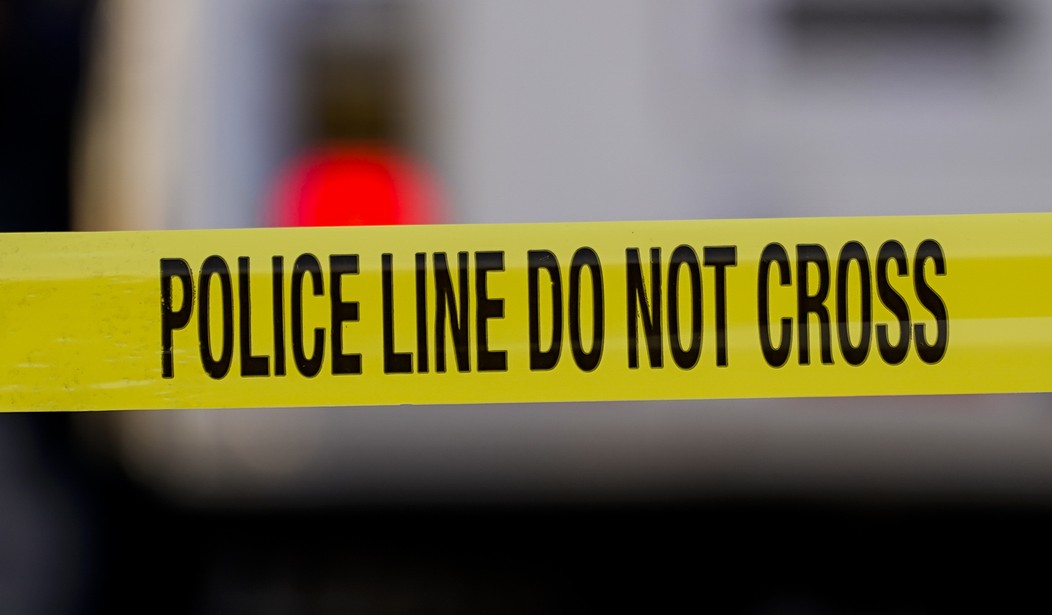Crime in Washington, D.C. is surging beyond last year's record: Homicides are up 32 percent with 253 so far this year and robberies have increased 70 percent to 3,280 year-to-date. Motor vehicle thefts have risen 91 percent to more than 6,400, and crime across the board in the nation's capital has increased 27 percent in 2023 with a few weeks before the new year.
Across the river from D.C. in the Commonwealth of Virginia, there's a relatively new sheriff in town, and Attorney General Jason Miyares — elected in November 2021 — isn't taking the threat of rising crime in the District or elsewhere lightly — especially when it's affecting Virginians.
"I think you have a huge problem in DC — it's clear," Miyares told me this week. "You could see from what's happening, just where the carjackings are taking place, is literally right over the border," he said of the relatively narrow Potomac River dividing line between his state and the nation's capital. "They're not coming into Virginia, but it's affecting Virginia," he explained. "It's Virginians that are being carjacked — you just had your third FBI agent this year that got carjacked."
D.C. is anything but an island, and it's filled with non-residents every day of the week for work, sightseeing, sports, or other entertainment, including a large number of Virginians. "It is absolutely impacting people that live in the Commonwealth," Miyares said. "You have the beautiful young woman that was a recent graduate of James Madison University that had come into the District to see a concert, and within hours of her being in the district she was brutally murdered in her hotel room by someone that should never have been on the street," he recalled of the suspect who'd been arrested many times before and had multiple warrants out for his arrest after he was released over objections he posed a danger to others.
Beyond tragic attacks that endanger the lives of Virginians in D.C., Miyares warned that the "organized crime element" also poses a threat to law and order in the Commonwealth and "doesn't just stop at the border."
Recommended
For example, "what you're seeing with the Sinaloa [Cartel] that is making inroads in Virginia," Miyares explained. "We know they have basically popped up in Richmond," he said. "My expectation: they're probably already in the DC, Northern Virginia area — you have MS-13 already here," added Miyares. "Generally what happens is, whenever you have it, is always a fight with the drug distribution network, and it gets really, really bloody," the attorney general warned. "That's one of my big concerns is, what happens in DC, if there's suddenly an ongoing feud or fight over distribution of narcotics."
Beyond Virginia's border with D.C. is the U.S. border with Mexico, another major factor in rising crime that's worrying Miyares. "What's happening on our border is, it is almost borderline criminal neglect," he explained. "With the amount of fentanyl that crosses the southern border, it can kill every man, woman, and child three times over."
Almost "everything" about the drug war has "fundamentally changed — just almost overnight," Miyares said of changes in the last half-decade. "It used to be that you needed acres of land, you needed good weather, and you needed a distribution network," explained the AG. "Now you don't need any of that. All you need is a chemistry lab."
The old ways are gone, added Miyares, because of "the absolutely massive quantity of fentanyl available to manufacture" and the fact that producers "already have a distribution network" in place to spread their deadly product to American streets. "It's getting much more deadly," Miyares said of the drugs hitting streets around the country. "And then the conflicts that are happening behind the scenes are a grave concern of mine where we are," he added of the violent fights over distribution.
Even before he was Virginia's top law enforcement officer, then-state House of Delegates member Miyares was focused on upholding law and order and enhancing penalties for those peddling deadly fentanyl. He and Virginia Republicans have been consistent in this goal, but Virginia's Democrats have lurched to the left to the detriment of the Commonwealth's safety.
Governor Glenn Youngkin, Miyares explained, "has been begging for legislation that says if you're a fentanyl dealer and somebody overdoses, you can be charged with felony homicide." That bill, coincidentally, was carried by Miyares when he served in the House of Delegates under then-Democrat Governor Ralph Northam. Then, despite passing with the support of "close to 20 Democrats" as Miyares retold, Northam vetoed the bill.
Fast forward a few years and, when Republicans in the legislature brought the bill back to the floor with the aim of having Governor Youngkin get the bill at his desk to finally sign into law, the legislation "died in a party-line vote" as Democrats who "had voted for the exact same bill four years ago voted against it," recalled Miyares. That reality "tells you how much they've shifted to the left — the overdose crisis has gotten worse, the fentanyl crisis has gotten worse — yet they couldn't vote for the same bill they'd voted for just a couple years ago."
Democrats' leftward lurch, Miyares added, is caused by their mindset that "anything that has enhanced penalties is something that puts a real target on the back in the Democrat primaries — they won't do it."
























